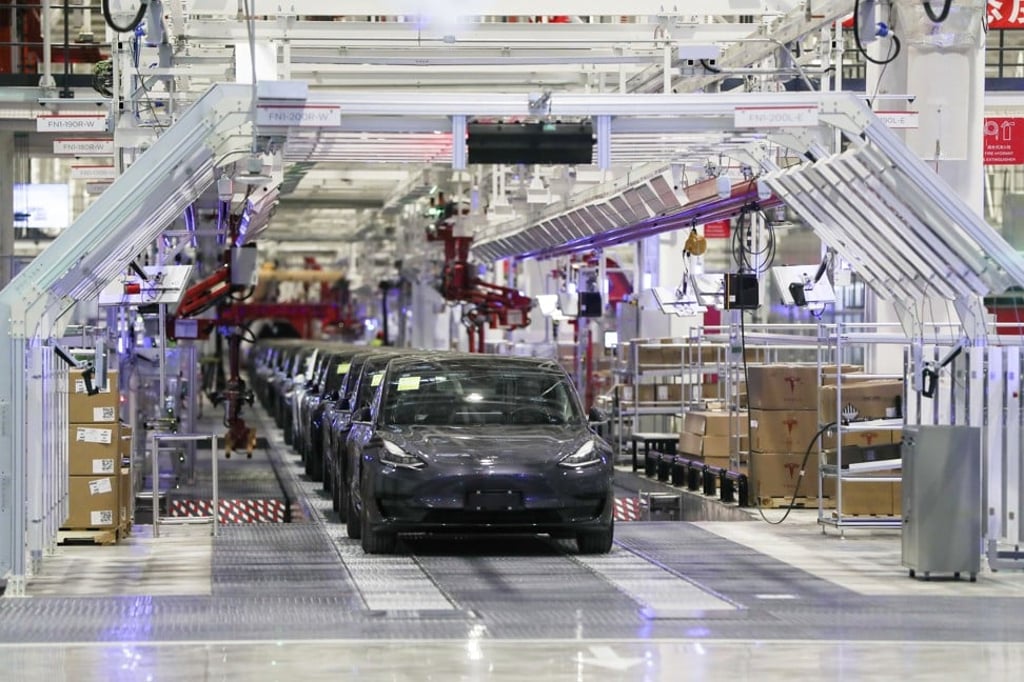Much is riding on Tesla as Shanghai’s authorities pull out all stops to resume Model 3 production at Lingang factory
- Shanghai’s government is pulling out all stops to help Tesla resume production at its Gigafactory in Lingang, offering housing for workers and helping to accelerate the transport of components to the plant
- Tesla said it can hit its 2020 production target of 150,000 electric cars

On a weekday afternoon at Swire Properties’ Taikoo Hui shopping centre in Shanghai, a dozen customers browsed at Tesla’s showroom in an otherwise deserted neighbourhood, as millions of residents remained homebound during the city’s effort to contain a coronavirus outbreak.
The focus of this rare scene was a Model 3 electric car, put together at Tesla’s spanking new US$2 billion Gigafactory 3 in nearby Lingang district, carrying a price tag of 299,050 yuan (US$43,000) after subsidies. Three months earlier, a fully imported Model 3 would have been priced at 370,000 yuan.
“Much hope is pinned on Tesla’s Model 3 to help the market regain its upwards momentum,” said Qian Kang, owner of a Zhejiang-based company that makes car components. “The market sentiment is so weak that we are looking for a star to stand out and lead the market rebound.”

Sales plummeted 92 per cent in the first two weeks of February, with just 4,909 vehicles finding buyers, according to data by the China Passenger Car Association, as the coronavirus lockdown kept buyers away from showrooms across the country. With job and business prospects weighed down by the trade war, many consumers had also been reluctant to spend on big-ticket purchases. Vehicle sales fell 8.2 per cent last year to 25.8 million units, while production shrank 7.5 per cent to 25.7 million units.